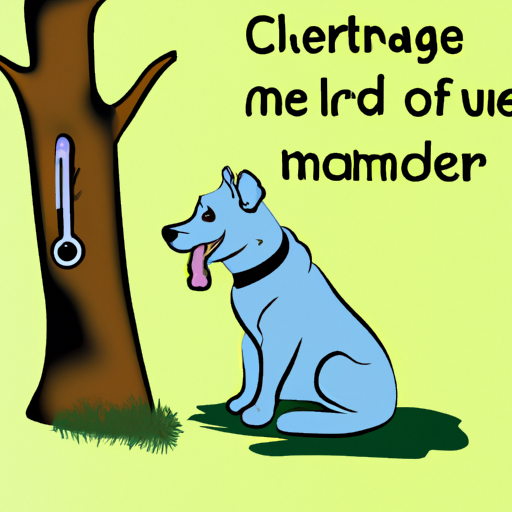As a caregiver to your furry companion, you often find yourself wondering about their behaviors. One such behavior that might have caught your attention is their panting when it’s not even hot. Let’s delve into the reasons behind this behavior.
1. Excitement or Anxiety
Dogs often pant when they’re excited or anxious. It’s their way of communicating their emotional state to you. Just like humans laugh, cry, or get butterflies in their stomach, dogs pant.
Here are some instances when dogs might pant due to excitement or anxiety:
- When you come home after a long day
- Meeting new people or other dogs
- Hearing loud noises like fireworks or thunderstorms
2. Exercise and Physical Activity
Undoubtedly, dogs pant when they exercise. It’s their way of cooling down. But did you know that they might continue to pant even after the exercise is over? This is because their body is still cooling down and returning to its normal state.
Consider the following:
- The amount of exercise your dog has done
- The intensity of the exercise
- The duration it takes for your dog to stop panting after exercise
3. Medical Conditions
Sometimes, panting can indicate underlying medical conditions. These could range from respiratory disorders to heart problems. It’s always best to consult with a vet if you notice excessive panting.
Here’s a table that shows some medical conditions that cause panting and their symptoms:
| Medical Condition | Symptoms |
|---|---|
| Heart disease | Coughing, tiredness, weight loss |
| Respiratory Disorders | Difficulty breathing, coughing |
| Cushing’s Disease | Increased thirst, increased urination, increased appetite |
4. Pain or Discomfort
Dogs can’t tell us when they’re in pain, but they can show us. Panting can be a sign of pain or discomfort. If your dog is panting and also showing other signs of discomfort, it’s time to schedule a visit to the vet.
Signs of discomfort include:
- Loss of appetite
- Trouble sleeping
- Changes in behavior
5. Aging and Obesity
Older dogs or overweight dogs are more prone to panting. Aging can bring about changes in a dog’s body that make them pant more. Similarly, overweight dogs have to work harder to move around, which can lead to panting.
Here are some tips to help:
- Regular vet check-ups
- Maintain a healthy diet
- Regular exercise
Frequently Asked Questions
1. Is panting normal in dogs?
Yes, panting is normal in dogs. It helps them cool down.
2. Should I be worried if my dog is panting a lot?
If your dog is panting excessively or showing other signs of distress, it’s best to consult a vet.
3. Can anxiety cause panting in dogs?
Yes, anxiety can cause dogs to pant.
4. How can I help my dog if they’re panting due to anxiety?
Try to identify and remove the source of anxiety. If it continues, consult with a vet.
5. What medical conditions cause panting in dogs?
Heart disease, respiratory disorders, and Cushing’s disease are a few conditions that can cause panting.
Remember, as a caregiver, your understanding and attention to your dog’s behavior can make a huge difference in their well-being.



